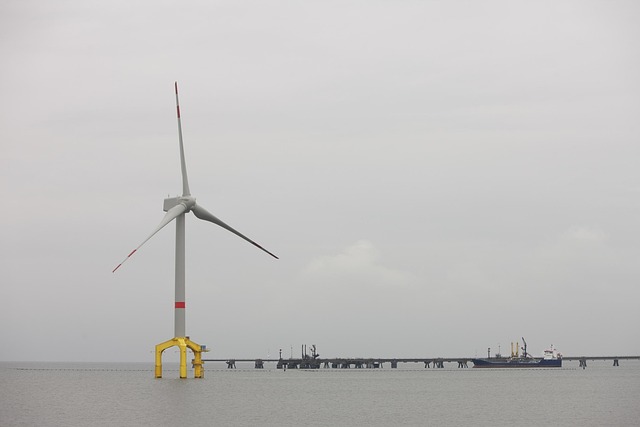South Africans can leverage offshore investments and tax planning to build a secure financial future. By strategically placing assets in foreign banks or companies, individuals can minimize tax liabilities, achieve investment diversity, and protect assets from local taxation. This approach is particularly beneficial for high-net-worth individuals navigating complex tax landscapes, offering advantages like higher returns and asset protection through double taxation agreements and specialized vehicles. However, staying informed about changing regulations and seeking expertise is crucial to managing complexities effectively.
“Unraveling the complexities of offshore investments can be a game-changer for South Africans aiming to build a secure financial future. This article guides you through the intricate world of offshore tax planning, offering insights into its benefits and potential implications. We’ll explore what offshore investments entail, dissect South Africa’s tax laws, and uncover strategies to optimize your tax management. By understanding these factors, you can make informed decisions, ensuring your financial goals align with tax-efficient practices.”
- What are Offshore Investments?
- Tax Laws in South Africa: A Brief Overview
- The Advantages of Offshore Tax Planning
- Navigating the Complexities: Understanding Tax Implications
- Strategies for Optimal Offshore Investment Tax Management
What are Offshore Investments?

Offshore investments refer to financial assets or businesses located in countries outside of South Africa. These investments are often held in offshore banks, trusts, or companies, offering various tax benefits and advantages. For South Africans looking to build a secure financial future, strategic offshore tax planning can be a game-changer. By utilizing these investment vehicles, individuals can legally minimize their tax liabilities while growing their wealth.
This approach allows for greater flexibility and diversity in managing investments, which is especially beneficial for high-net-worth individuals facing complex tax landscapes. Efficient offshore tax strategies can help South Africans protect their assets, reduce exposure to local taxes, and potentially access more favorable regulatory environments, thereby fostering a robust financial plan tailored to their unique circumstances.
Tax Laws in South Africa: A Brief Overview

South Africa’s tax laws are designed to ensure fairness and generate revenue for public services, reflecting a delicate balance between supporting economic growth and maintaining fiscal sustainability. As a result, individuals with offshore investments face specific regulations to prevent tax evasion and money laundering. These rules can significantly impact your ability to build a secure financial future through offshore tax planning.
Understanding these laws is crucial when considering international investments. South Africa offers various tax incentives for certain business activities and investments, encouraging economic development while ensuring compliance. However, it’s essential to stay informed about the latest regulations to make informed decisions regarding offshore assets, especially as tax landscapes can evolve with policy changes.
The Advantages of Offshore Tax Planning

Building a secure financial future often involves strategic tax planning, and for South Africans considering offshore investments, this can be a powerful tool. One of the key advantages is the potential to minimise tax liabilities while maximising returns. Offshore structures allow investors to take advantage of different legal systems and tax regulations, which may offer more favourable treatment of income and assets. This is particularly appealing for those looking to grow their wealth efficiently and protect it from potentially high domestic taxes.
Furthermore, offshore tax planning provides flexibility and diversity in investment choices. It enables South Africans to access global markets, invest in a range of asset classes, and take advantage of opportunities not available locally. This strategic approach can be a game-changer for long-term financial security, allowing individuals to build a robust financial future with enhanced wealth preservation and growth prospects.
Navigating the Complexities: Understanding Tax Implications

Navigating the complexities of offshore investments requires a deep understanding of tax implications, especially for South Africans looking to build a secure financial future. While offshore accounts and investments can offer significant advantages such as higher returns and asset protection, they also come with unique tax challenges. It’s crucial to comprehend how these structures interact with local tax laws to avoid penalties and ensure compliance.
Tax planning for offshore assets involves careful consideration of double taxation agreements, capital gains taxes, and reporting obligations. By strategically managing investments and utilizing available legal tools, individuals can optimize their tax positions, potentially reducing their overall tax burden. Building a secure financial future with offshore tax planning thus requires both expertise and foresight to navigate these complexities effectively.
Strategies for Optimal Offshore Investment Tax Management

Building a secure financial future often involves exploring diverse investment opportunities, and offshore investments can offer significant advantages to South Africans looking to grow their wealth. However, navigating the tax implications associated with these ventures is crucial for optimal returns. One of the key strategies for managing offshore investment taxes is through advanced planning. This entails understanding and complying with the local tax laws of the host country while leveraging double taxation agreements (DTAs) between South Africa and other nations to minimize liabilities.
Offshore tax planning should be a holistic process, considering various factors like the type of investment vehicle used, the jurisdiction’s tax regime, and an individual’s or entity’s unique financial goals. It may include establishing special purpose vehicles, utilizing tax-efficient structures, and timing transactions strategically to take advantage of favorable tax treaties. By employing these strategies, South African investors can ensure their offshore investments contribute meaningfully to building a secure financial future while effectively managing tax-related risks.
For South Africans seeking to build a secure financial future, understanding the tax implications of offshore investments is pivotal. By navigating the complexities outlined in this article—from defining offshore investments to managing tax efficiently—individuals can leverage strategic planning to mitigate risks and optimize their investment returns. This approach allows for a more robust and diversified portfolio, ultimately contributing to long-term financial stability and growth. Embracing offshore tax planning responsibly empowers South Africans to take control of their financial destiny in today’s global economic landscape.















